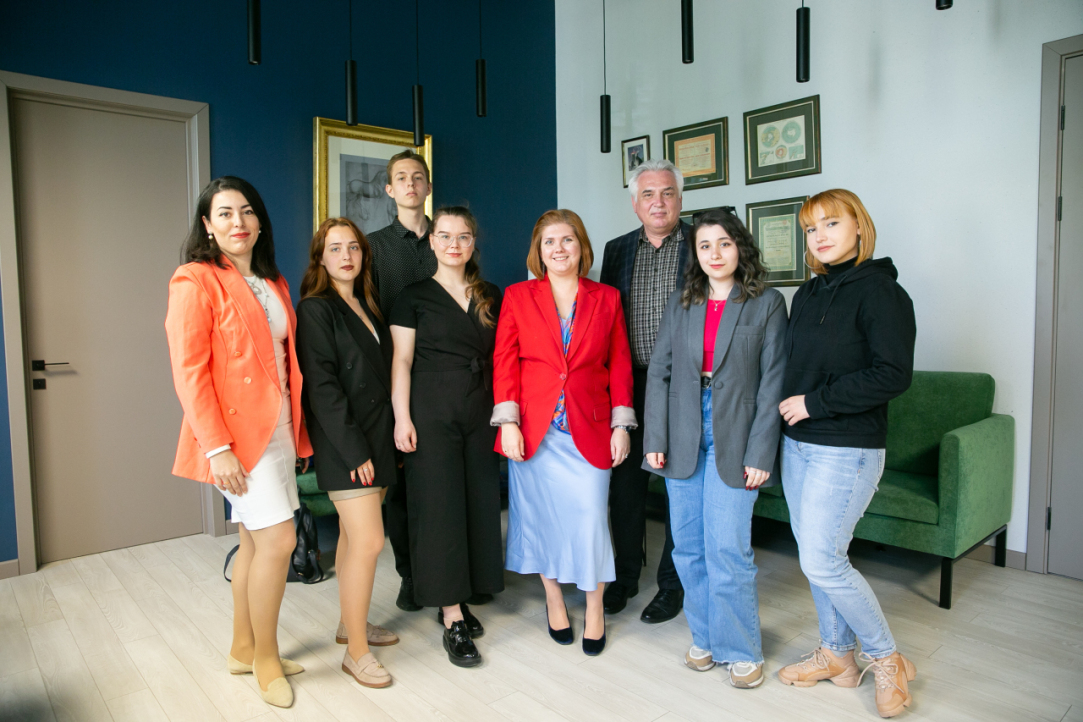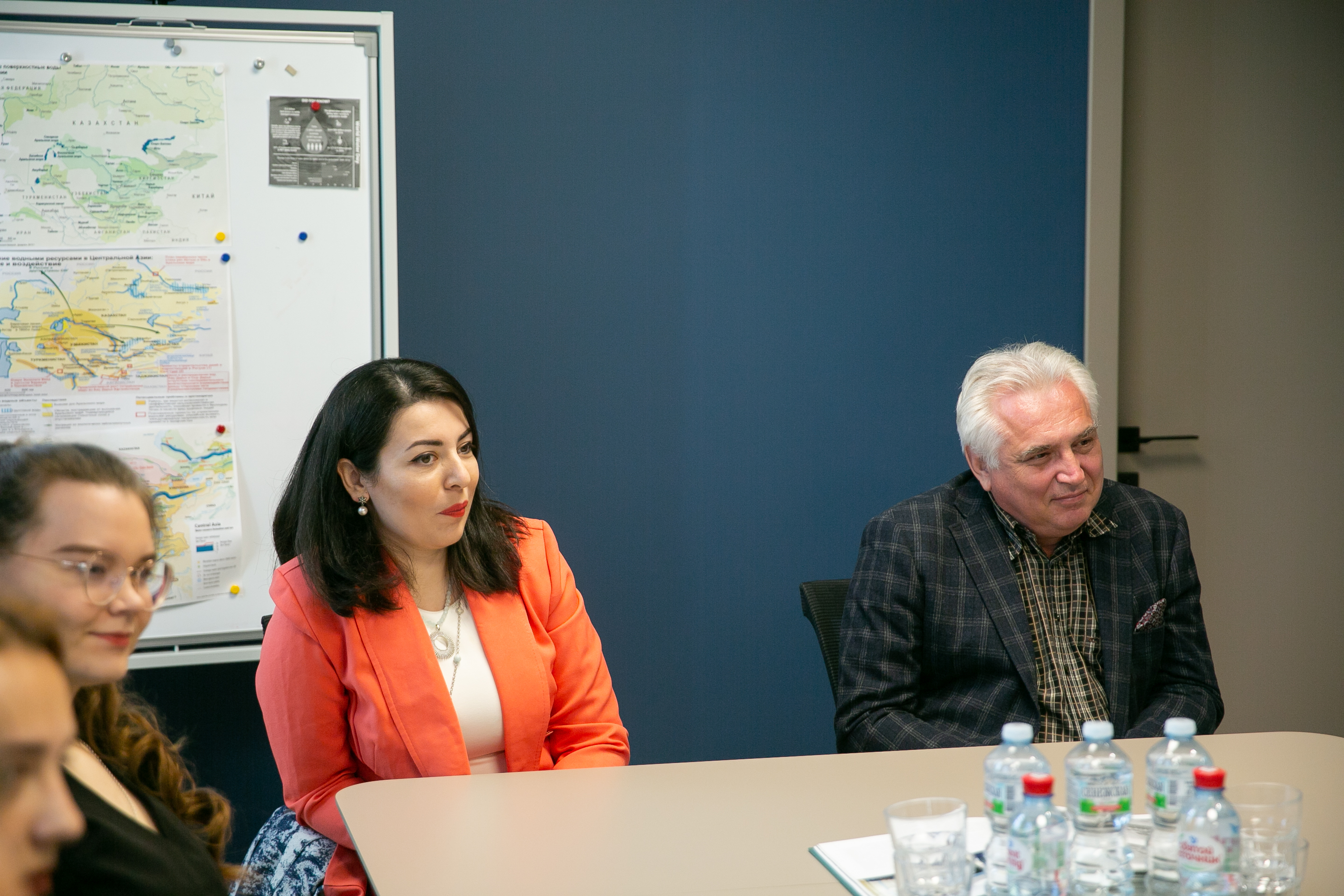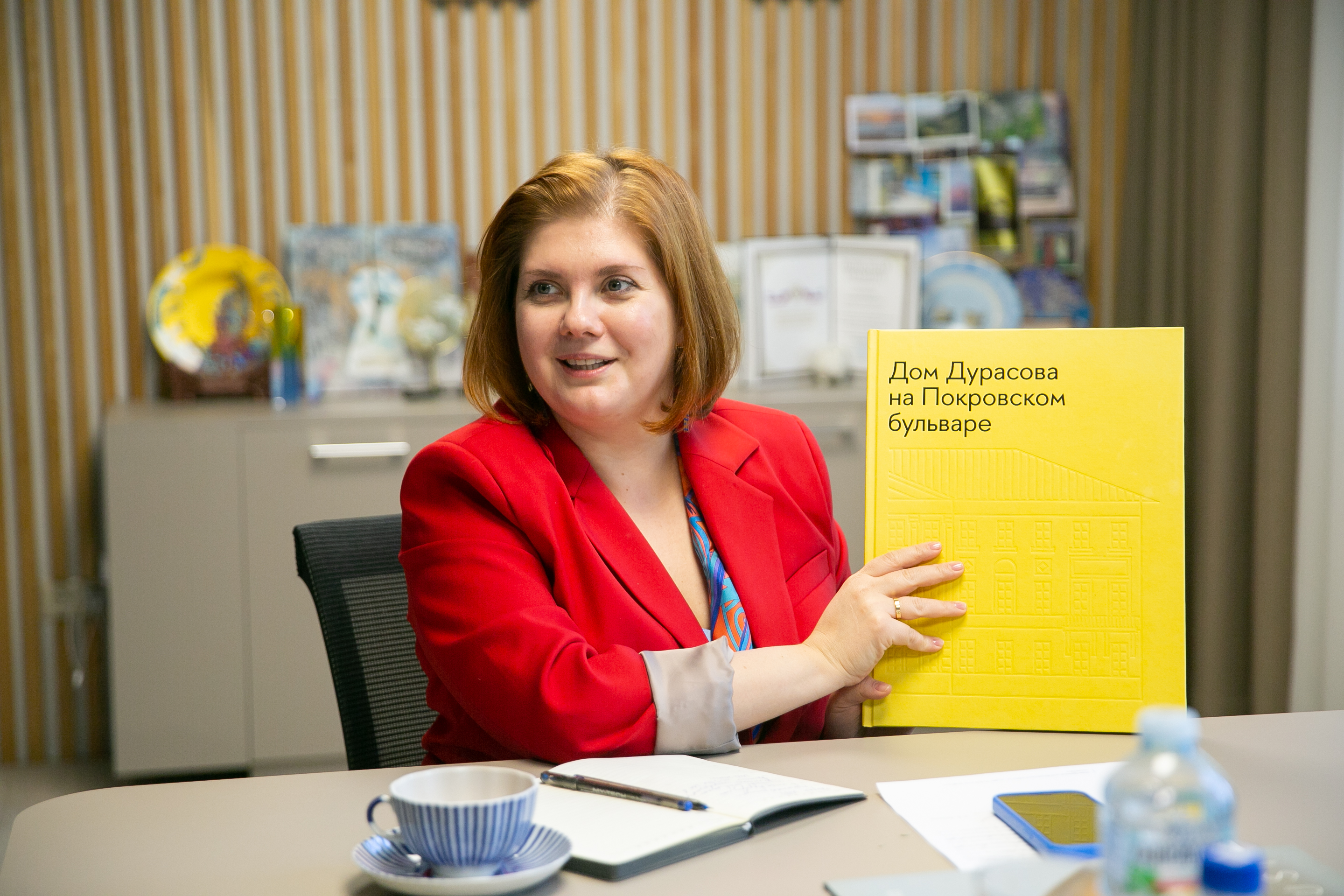Students of HSE and SFedU Double Degree Programme Visit Their Second Alma Mater

Since 2022, HSE University and the Southern Federal University (SFedU) have been implementing a joint bachelor's programme ‘The Caucasus and the Middle East in the System of Regional and International Relations.’ Education takes place in Rostov-on-Don, with HSE professors mostly involved in the process remotely. In late April 2024, some of the top students from the programme were invited for a week to HSE University, where they participated in various educational and scientific events.
The bachelor’s programme ‘Caucasus and the Middle East in the System of Regional and International Relations’ combines the strengths of both universities, according to its Academic Co-Supervisor from HSE University, Senior Lecturer of the HSE Faculty of World Economy and International Affairs, Elmira Imamkulieva.

‘We train unique specialists with a comprehensive understanding of the Middle East and the Caucasus, and our teams complement each other excellently. SFedU has become a serious scientific base for research on the South of Russia, while HSE University specialises more in the Middle East and the southern part of the Caucasus,’ she explains.
Top students of the first and second years’ BA programme started their visit to HSE University with a meeting with Dean of the Faculty of World Economy and International Affairs Anastasia Likhacheva and First Deputy Dean Igor Kovalev.

Anastasia Likhacheva told the participants about the HSE campus in Moscow and, in particular, the Faculty building at 47 Bolshaya Ordynka Ulitsa, the history of which dates back to the 1860s. She also asked the students about their successes, and their scientific and professional interests.
As it turned out, the range of their interests fully corresponds to the chosen direction of educational training. For example, Daria Komogorova is studying the preservation of the ethnocultural identity of Assyrians in Armenia, while Yana Mironenko is focusing on various aspects of countering terrorism and extremism. After her first year, she completed an internship at the National Centre for Information Counteraction to Terrorism and Extremism in the educational environment and the Internet, and now works there.

The double degree programme involves studying Eastern languages (Turkish, Arabic, Farsi), as well as some Caucasian languages. Anastasia Likhacheva recommended the students to start using them in research during the third and fourth years. ‘Even if you do not yet speak the language fluently, do not be afraid to venture into new linguistic spaces. You are growing as regional experts, and you cannot do it without sources in a foreign language,’ emphasised the Dean.
In turn, Igor Kovalev recommended students to be careful in working with sources. ‘You should have different sources, and the data obtained from them should be compared and cross-checked. A true specialist in international relations should not take anyone's word for anything. After reading the memoirs of a current politician, you must immediately read the memoirs of his opponent, because a current politician will not speak negatively about himself,’ explained the First Deputy Dean.
The participants of the meeting also discussed other topics, such as the use of the experience of HSE student organisations at the SFedU Institute of Sociology and Regional Studies. A branch of the HSE Middle East Club has already been established there, and Anastasia Likhacheva also recommended taking a look at the HSE Cinema Club. Following its example, participants of the double degree programme could organise regular screenings of Turkish and Arabic films and their discussions on SFedU campus.
At the end of the meeting, the Dean noted that graduates of the double degree programme will have broad opportunities for further development, one of which is admission to a master's degree programme.

Over three days, students from Rostov-on-Don attended various educational and scientific events, some of which were specifically organised for them. For example, a research fellow from the HSE Laboratory for Contemporary Iranian Studies, Anri Chedia, delivered a lecture on Turkey's soft power policy in Central Asia and the Caucasus since 1991.
The students also took part in open events held at HSE University at the time of their visit. Among them was a conference of young Orientalists and Africanists ‘Asian and African Horizons: Interdependence and Competition in the New World Order,’ as well as a meeting with British diplomat Alastair Crooke—the founder and Director of the Conflicts Forum non-profit organisation—organised jointly with the Council for Foreign and Defense Policy (SWAP).

The programme of the students’ visit concluded with a master class by Andrey Baklanov, Professor of the HSE School of International Regional Studies, who served as Ambassador Extraordinary and Plenipotentiary of the Russian Federation to Saudi Arabia from 2000 to 2005. He gave the meeting participants a manual on simulation games (one such game is the Model UN, in which students imitate the work of this organisation) and recommended using them more actively to develop those competencies necessary for future international relations specialists. Andrey Baklanov also talked about new courses for young Orientalists, where he teaches skills in recording conversations, preparing briefing notes, diplomatic notes, and the basics of interagency correspondence.
